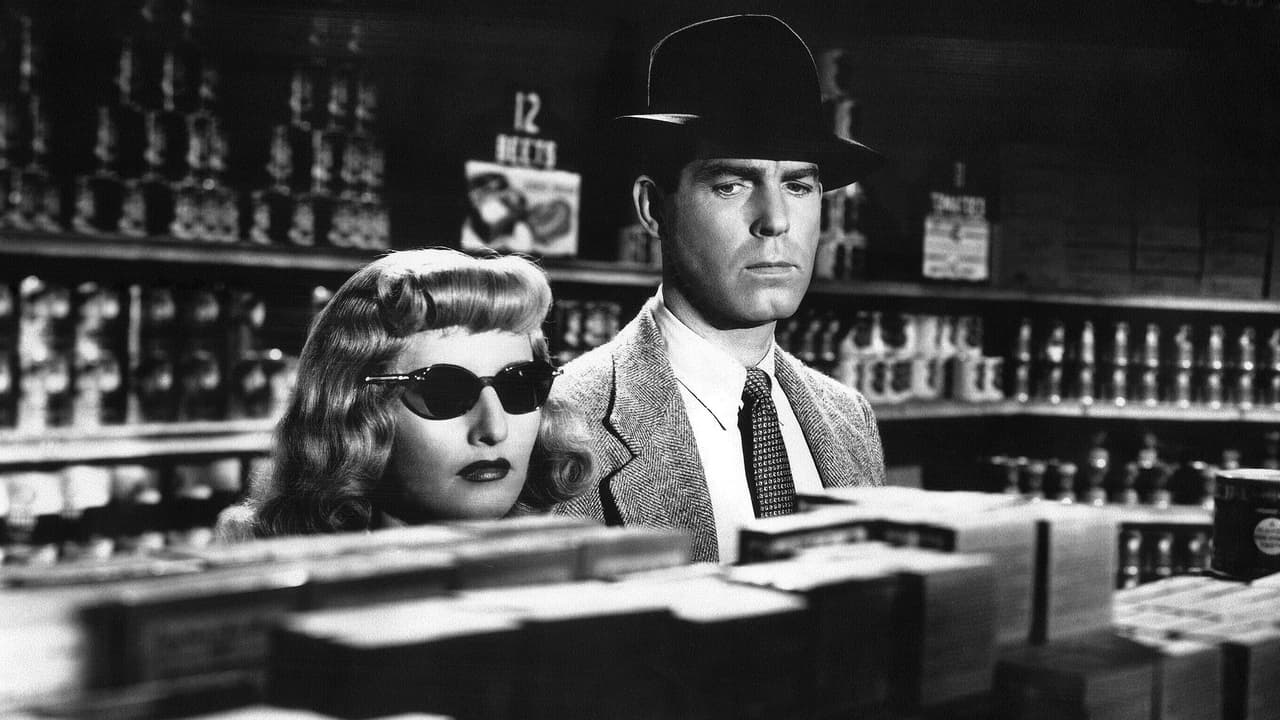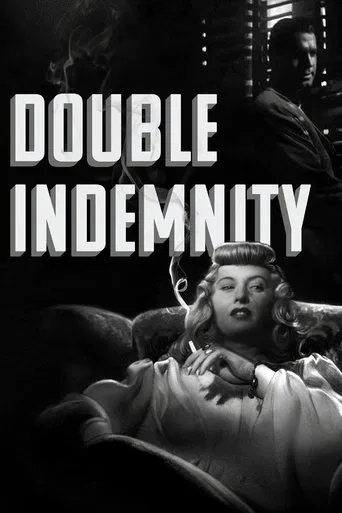

It’s not bad or unwatchable but despite the amplitude of the spectacle, the end result is underwhelming.
... View MoreThe film's masterful storytelling did its job. The message was clear. No need to overdo.
... View MoreThe film may be flawed, but its message is not.
... View MoreBlistering performances.
... View MoreDouble Indemnity is a prime example of classic film noir. Plus, for those of us raised on live-action Disney movies, it's fun to see Fred MacMurray play a role so dramatically different from what we're used to. I love the quick and stylized dialogue. Who knew that a story about an insurance salesman could be so dark and gritty?
... View MoreDouble Indemnity is directed by Billy Wilder and Wilder co-adapts the screenplay with Raymond Chandler from the novella written by James M. Cain. It stars Fred MacMurray, Barbara Stanwyck and Edward G. Robinson. Music is by Miklos Rozsa and cinematography by John F. Seitz.For a film lover such as myself it feels redundant writing a review for Double Indemnity, because quite simply there's nothing to say that hasn't been said already. The esteem it is held in is justified, it's a razor sharp noir across the board and can be put up as one of the classic noir era pictures that got lovers of the form interested in the first place.Based around the infamous Snyder/Gray case of 1927, Wilder and Chandler fill the story with a sinister cynicism that is palpable in the extreme. With a script positively pumped with hard boiled dialogue, a simple case of murder becomes so much more, a labyrinth of devious cunning and foolishness, with a trio of top performances crowning this topper.Technically via aural and visual work the story gains extra spice. Rosza provides a score that frays the nerves, imbuing the sense of doom and edginess required for plotting. Seitz excels, the photography a trademark for noir, heavy shadows, abrupt camera angles and menacing shards of light come to the fore.And to top it all off, it gets away with so much, a real censorship baiter. The story takes a journey to the dark side of morality, and the makers, bless them for they know what they do, gleefully tease the production code to give film noir fans a reason to rejoice.Quintessential stuff. 10/10
... View MoreWhen I think of Film Noir, Double Indemnity is the film I immediately think of. It has almost all the tropes characteristic of the genre. Voice-over narration, murder, a determined investigator, the corruption of an otherwise upstanding citizen, and the quintessential Femme Fatale of all time.The backbone of the film is the outstanding script by Billy Wilder and Raymond Chandler, perhaps the greatest writer of 'hardboiled' detective fiction, which was adapted from the novel of the same name by James M. Cain. The dialogue is dark, witty and poignant and crackles through the air like electricity. The film is as much a joy to listen to as it is to watch. Of course, part of the reason the dialogue is so great is the performances Wilder got from his actors. Barbara Stanwyck gives the best performance of her career as the scheming housewife who convinces Fred MacMurray's insurance salesman to help her plan the murder of her husband. Edward G. Robinson is almost as good as the investigator at the insurance company whose eccentric mannerisms and dour demeanor make him one the most entertaining detectives in fiction.The true appeal of Noir is in its look and John Seitz does a marvelous job with the cinematography. I've rarely seen light used so effectively in a film or such a richness in the shadows and the contrast between the blacks and whites. Topping off all these fantastic ingredients is a tremendous score by Miklós Rózsa. A somewhat overlooked score, it has a powerfully foreboding main theme that gives the opening and ending scenes of the film an atmospheric punch that sears the sequences into your memory.One of the few films I've seen without any flaws, each aspect of Double Indemnity complements each other and makes the film not only one of the best examples of Film Noir but one of the greatest films of all time.
... View MoreBarbara Stanwyck is unhappily married but not helpless in this hypnotic Billy Wilder film classic, "Double Indemnity," based on the James Cain novel. Stanwyck is hardly ever helpless. She plays the quintessential femme-fatale, as she seduces insurance salesman Fred MacMurray into her web and entices him to kill for her. The target is her husband. That's all you really need to know. But why am I reviewing this with so many reviews already? #1: To be among the masses who say and agree that this is arguably the best film noir ever, and #2 : To sing the praises of Edward G. Robinson! Many people will invest a lot of time in Billy Wilder's stylized technique of movie-making and his attention of each minute detail and the incredible dialogue and script, co-written by Raymand Chandler, and perhaps Fred MacMurray's best performance on screen, but while all this is true and all these factors come together to make a perfect film. One of the biggest factors is Edward's contribution to this film. The words on the page burst forth, when Edward says them. His tirades about death statistics bring life and breath to the film in contrast to the other two, who are somberly serious and only thinking about how to get out their problems alive! The balance of "hammy" Edward and his outbursts conveying joy, revelation, frustration and feeling about his job and his "little man" and "Papa," solving each mystery, along with the walking dead characters make for a mesmerizing movie experience. I have praised the always professional and exceptional Stanwyck before in other reviews. To go on any further with anything would be redundant; this is Billy Wilder and his cast's finest hour.
... View More